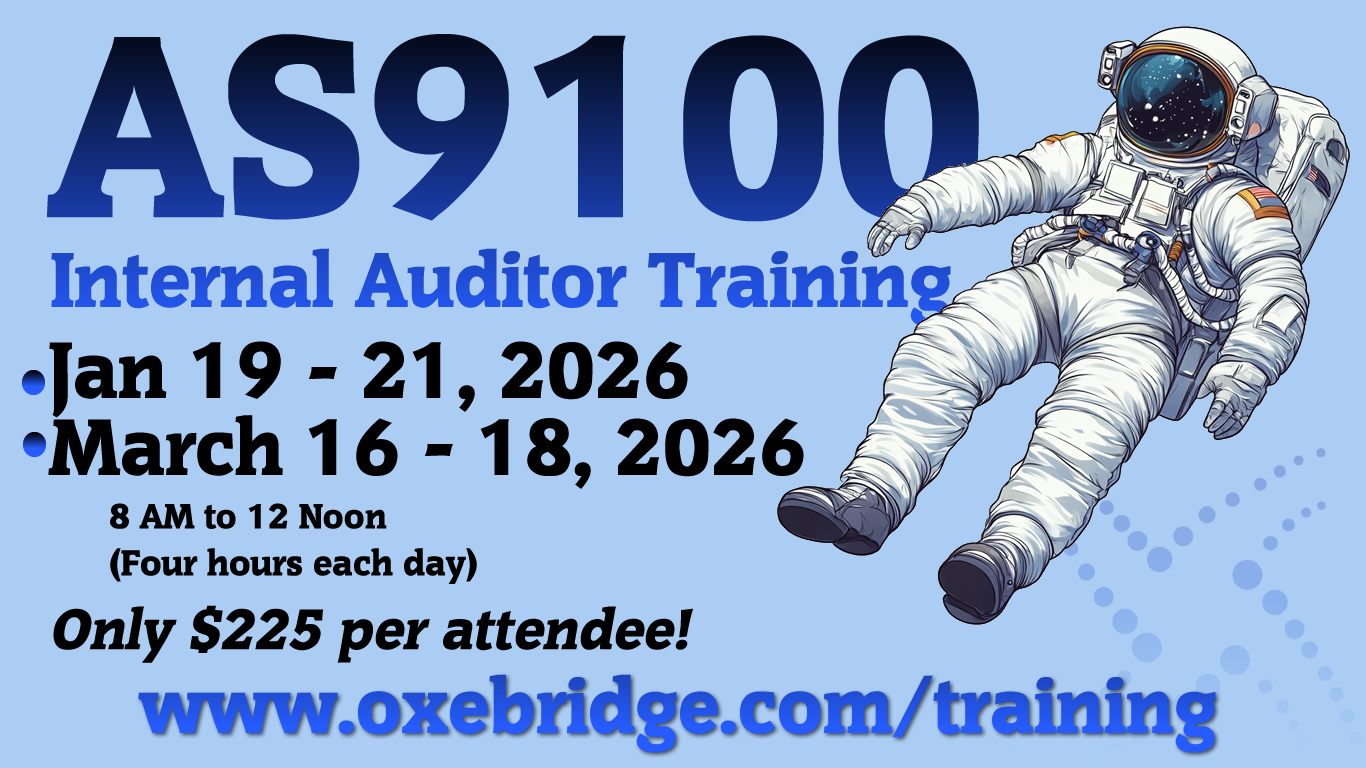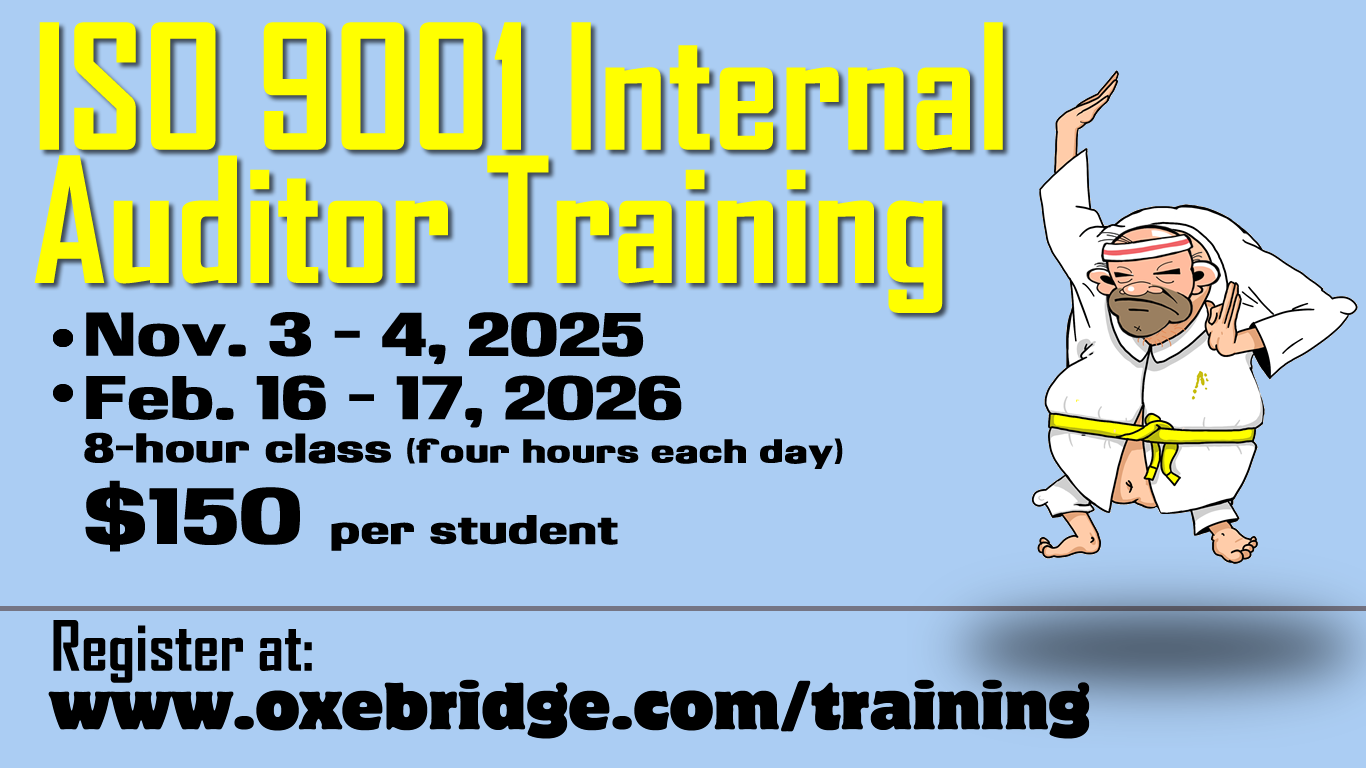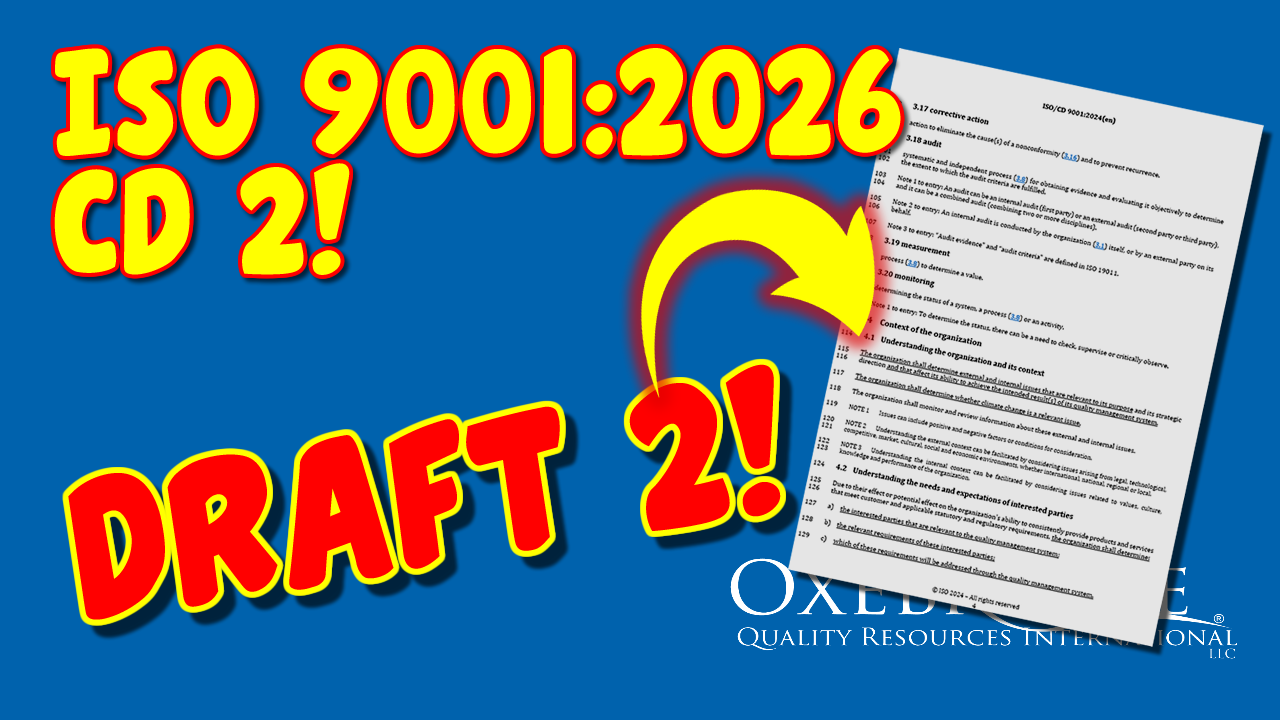Oxebridge has confirmed that ISO intends to scrap the recent Committee Draft (CD) of the upcoming ISO 9001 revision and has begun work on a second draft, coded “CD2.” This comes after the ISO Central Secretariat rejected wholesale all comments on CD1 from the delegates representing nations on TC 176, the official Technical Committee responsible for developing ISO 9001. The Central Secretariat, under direction by ISO Secretary-General Sergio Mujica, has instead granted sole authority for the revision of ISO 9001 to an unknown set of hand-picked delegates operating under the control of the British Standards Institute (BSI), with Nigel Croft said to have an unprecedented level of influence.
Croft, along with Trinidad’s Devindra Chattergoon, have been granted authority to run the CD2 effort due to their willingness to follow the demands of Mujica, disregarding the objections of world delegates. The ISO Technical Management Board (TMB), which answers to Mujica, has been instructed to continue developing its controversial “Annex SL” mandatory text, disallowing TC 176 members to edit it. Chattergoon has already issued a stern warning to TC 176 that they must obey the TMB and incorporate the revised Annex SL text, regardless of international delegate feedback.
The elevation of Chattergoon to his current position made little sense, given Trinidad has only approximately eighty ISO 9001 certificates out of the world’s total of just under 1.3 million.
The Central Secretariat’s moves are reported to be the reason long-time TC 176 members like Lorri Hunt have resigned.
Committee Draft 2
The original CD had included an entire other book, ISO 9001 for Small Enterprises, added to the end as an appendix. This decision was met with derision, as the content was targeted only at small businesses, disregarding all other user groups. The additional pages would have also raised the cost of ISO 9001 to over $US400 per copy. The new CD2 will reportedly back off this decision and remove the annex entirely.
The first CD was also criticized for including only one largely baffling minor change which would make the measurement of objectives optional, rather than mandatory. Allowing objectives to be unmeasured led some to conclude ISO was condoning “management by slogan,” something W. Edwards Deming railed against. The other changes proposed in CD1 were to non-binding notes, without any impact on the requirements.
The original CD also failed to correct existing flaws in ISO 9001:2015, such as how clause 4.0 is presented in the wrong order, multiple clauses contain no requirements, and some clauses moved crucial requirements into non-binding “Notes.”
It is expected, however, that CD2 will leave these errors intact and merely add more language aimed at helping BSI sell supporting standards, while helping Mujica and Croft improve their credentials as they jockey for positions within the United Nations.
ISO is also demanding CD2 be written in a way that is “machine-readable” to comply with its “ISO Smart” standards project. Under this project, all ISO standards will be readable by AI in order to be automatically inputted into end user devices. ISO has declined, on multiple occasions, to explain what exact “machines” it thinks will be used to read ISO 9001. The ISO Smart project will also do away nearly entirely with delegate voting and instead offer “real-time” updates to ISO 9001 at the whim of the Central Secretariat.
Political Ambitions in Play

Sergio Mujica
Mujica had forced the addition of “climate change” into the ISO 9001:2015 standard via an emergency “Amendment 1,” which was never voted on by TC 176 members. That move was intended to burnish Mujica’s credentials for a possible run in 2026 for UN Secretary-General. It violated ISO’s standing rules of procedure on how standards are published.
Mujica, who headed the Chilean customs agency before taking the post at ISO, was never a serious candidate for the UN role. Now, Mujica is hoping the former president of Chile, Michelle Bachelet, will win the post and grant him a supporting role. Bachelet is considered to be one of a handful of candidates who are likely to win the coveted UN seat. Mujica ran the Chilean customs agency under Bachelet but resigned after his department was investigated for enabling drug smuggling and money laundering; he took the ISO position shortly thereafter.
Croft made his money after he married a Brazilian steel mill heiress, although he has now rebranded himself as a climate change activist, ignoring the impact the steel industry has had on Brazil’s rainforest. With the help of BSI, he became a powerful figure in the ISO 9001 development community, despite not having direct experience with the standard. At one point, he attempted to form the Croft Global Alliance, a group of private consultants who would leverage Croft’s connections and their positions on TC 176 to obtain ISO 9001 consulting work. That move appeared to violate ISO rules and was abandoned after CGA failed to gain clients. He then pivoted to working as a paid consultant for the UN Industrial Development Organization (UNIDO).
Croft was the subject of a high-level ethics complaint when he violated ISO’s social media policy by attacking critics online, and for having leaked confidential ISO and TC 176 information in order to take down his perceived enemies. ISO never processed the complaint, and continues to grant new powers to Croft in exchange for his support of Mujica’s authoritarian dictates.
BSI, meanwhile, has pushed ahead on the development of alternate quality management system standards, such as BS99001. BSI has already begun selling audits and training to the standard, despite the lack of an accreditation program to do so. This move shows how BSI creates standards solely to boost its certification sales without regard for international consensus.
By granting BSI the sole authority to draft ISO 9001, all other international standards developers and TC 176 mirror committee have effectively been sidelined.
Aerospace Standard Development Also Scuttled
At the same time, the International Aerospace Quality Group (IAQG) has taken a similar move, halting all development on the new AS9100 revision, called “IA9100,” and handing development over to a set of representatives hand-picked by Eric Jeffries of Bell Textron. While this has neutered the influence of Boeing, as the company faces ongoing public relations nightmares and quality problems, but also further restricted stakeholder input in the standard. Two astronauts are currently stranded at the International Space Station because of quality issues with Boeing’s Starliner spacecraft.
In both the ISO and IAQG cases, it appears that both groups have surrendered all pretense that formally nominated subject matter experts develop the standards. Instead, the publishing houses have moved to skew the content of standards in order to sell other standards, while helping key executives gain personal power and elevate their own careers.
The World Trade Organization (WTO) has a set of detailed regulations on the development of ISO standards, called the Technical Barriers to Trade (TBT) regulations, but the WTO has refused to enforce them. Under former Secretary-General Rob Steele, ISO ran its operations to ensure conformity with TBT, but since Mujica took over, ISO has routinely violated the regulations.
Deadlines Uncertain
As a result, it is no longer clear if the ISO 9001 revision will meet its intended publication date, which had been targeting December 2025.
This also muddies the date for the AS9100 update, since the aerospace standard utilizes the text of whatever version of ISO 9001 is most recent. Previously, IAQG officials said they intended to wait to release the new IA9100 standard after ISO 9001 was released; if ISO 9001 was delayed, however, IAQG said they would push an early release of IA9100 and update it again after ISO 9001 was revised.
Sources have told Oxebridge that the executives’ takeover is being done, in part, to ensure the quick publication of the standards by stripping out delays caused by delegate commenting and official translation stages. Until the WTO steps in to ensure standards are truly developed by consensus, ISO is likely to continue to strip away the rights of experts and international delegates.
Oxebridge is calling on key international members to protest the Central Secretariat and demand a return to consensus standards written by subject matter experts.







